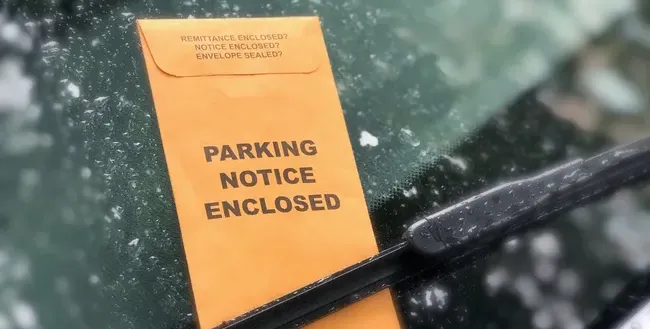
Did you get a parking ticket? It could be a scam.
Receiving a parking ticket is never pleasant. If you happen to find it behind the windscreen wiper of your car or receive it by email or letter - beware! It could be a scam.
The genuine Penalty Charge Notice can be left on your windscreen or sent by post but never by email!
Read our article to find out about the most common scammers' techniques and how to avoid them.
How parking fines scammers operate?
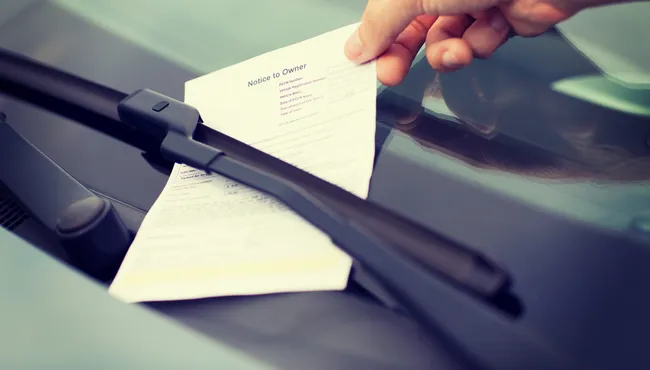
This scam targets drivers who have received a parking ticket. The scammer is then sending a notice claiming to be from the local government or police department, requesting payment for the fine. However, this is not a legitimate agency and any money sent to them will not go towards paying the actual ticket.
It is important to verify that the notice is from an official source before sending any form of payment. This can be done by contacting the local government or police department directly to confirm the validity of the notice. Additionally, do not give out personal information such as credit card numbers or bank account information to anyone claiming to collect on parking fines. Always exercise caution when providing personal information over the phone or internet.
What are the most common parking fines scams?
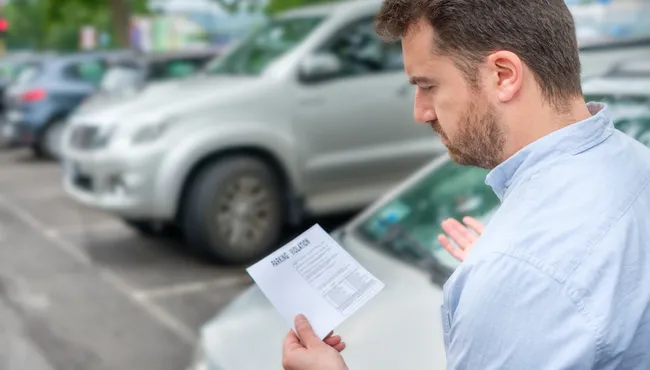
-One of the most common scams involves a parking attendant issuing fake tickets for nonexistent violations. In some cases, attendants may even vandalize cars and then issue a bogus fine for the damage.
-Another one happens, when a driver will park at a meter with time remaining, only to come back and find that they have been issued a ticket for expired parking. This often happens when the scammer quickly switches out the paid-for time on the meter with their own expired time.
-Recently, a very popular one is the use of fake parking permits. These are often sold online and may even look legitimate, but they do not have official authorization.
-Another common scam is for scammers to place fake parking tickets on cars, asking for payment to a bogus company. Many parking lots are privately owned and operated, not run by the city or government. This means that the person writing your parking ticket may not actually be a real police officer or city employee. If you're unsure about the legitimacy of your parking ticket, do some research on the company listed as the issuer and contact them directly to confirm.
-Many drivers received letters in the mail claiming they had violated parking regulations at a specific parking lot. However, many of these drivers had never even visited the lot in question. Upon further investigation, it was discovered that the scammers were obtaining vehicle registration information and using it to falsely accuse individuals of parking violations. Victims were then pressured into paying hefty fines or facing legal consequences. Fortunately, authorities were able to track down and apprehend those responsible for this fraudulent scheme.
-You may also get fake speeding or red light camera tickets via-email.
-Finally, some scammers will pose as parking enforcement officers and issue fake tickets to unsuspecting drivers.
Fake parking tickets received via e-mail
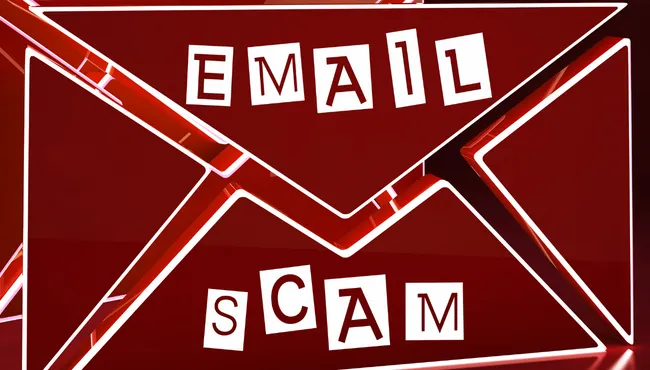
These fake tickets ask for online payment, and will often include the branding of a legitimate parking company. The main purpose of such an email is to make you click on a link, which you guess is false and whose main purpose is to extort money or hack your computer.
It is important to keep a cool head in such situations. As you know, it is always stressful to be informed that you have received a fine, so we can lose our guard and click on a link without thinking. All the more so because the emails look very credible, with all the necessary information and the company's issuer logo. Very often it looks like sent from HM Courts & Tribunals Service (HMCTS) which gives great credibility.
Always check who the recipient of the email is and pay attention to stylistic, grammatical and spelling mistakes. This is usually what makes them different from the real ones.
If you receive one of these fake tickets, do not respond or make any payments. Instead, report it to the authorities and delete the email. Remember, never give any bank details or credit card numbers, unless you are absolutely sure that this is true message. However, it is important to remember that legitimate parking tickets will never ask for payment through these means.
Always be cautious when providing personal details or financial information, especially over the internet.
What to do to avoid becoming a victim of fraud?
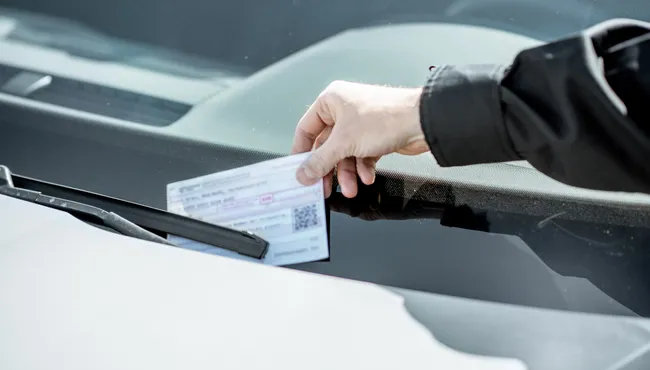
1. To protect yourself from this scam, always make sure to carefully read any parking ticket you receive. Look for identifying information such as the name and badge number of the issuing attendant. If there are any inconsistencies or missing information, do not hesitate to question it with your local authorities. If you receive a ticket from a private car par, don't pay it automatically.
2. Always check what is written on a ticket. The official council tickets are named "Penalty Charge Notices", "Excess Charge Notice" or "Fixed Penalty Notice" and should always have the name of the issuing authority.
3. Try to park in well-lit and populated areas whenever possible. This can deter potential scammers from targeting your vehicle. And if you do receive a suspicious ticket, report it immediately to help prevent others from falling victim to this dishonest scheme. Remember: trust your instincts and don't let yourself be taken advantage of.
4. Other ways to protect yourself from this scam include taking a photographic evidence of your parking spot or keeping a record of the time you parked, in case there is any discrepancy with the ticket's timestamp. It may also be helpful to familiarize yourself with local parking regulations so that you can accurately determine if the violation listed on the ticket is valid.
5. Always pay for legitimate parking instead of risking getting scammed or fined. Better safe than sorry!
6. Be careful when parking at private property.
7. Always remember to double check the sender of any notices or requests for payment before taking action. Be wary of unexpected or unsolicited communications regarding parking fines. Trust your instincts - if something seems suspicious, it's better to confirm with official sources before proceeding.
8. Watch out the warning signs which have been displayed in a number of car parks around the country, warning residents of a potential fake parking ticket scam. It appears that someone is walking around placing fake tickets on the windscreens of unsuspecting drivers and demanding payment.
8. Make sure it's your car's registration number on the ticket and not someone else's. The ticket could be fake, even if the details look correct.
9. If you believe you have been targeted by this scam, report it to your local authorities and Action Fraud on 0300 123 2040